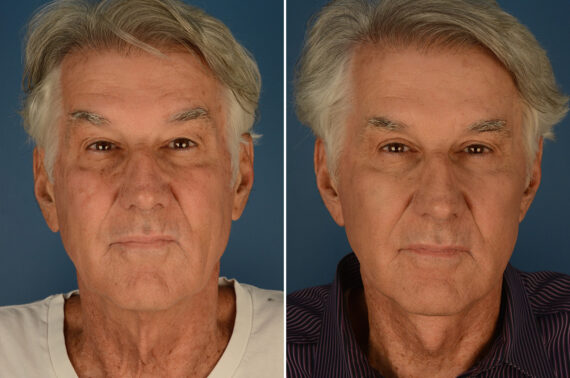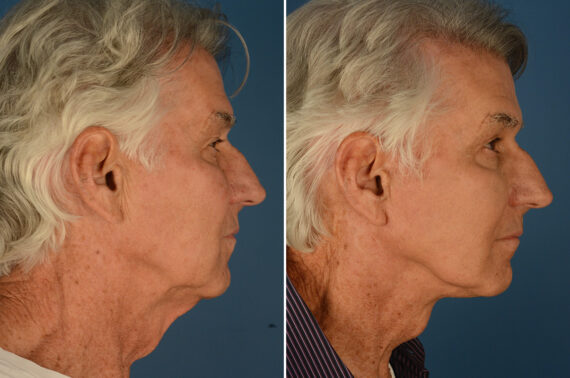Recovering from cheek and chin surgery can be a transformative experience, but it often comes with its own set of challenges. Ensuring a smooth recovery is essential for achieving the desired results while minimizing discomfort and complications. By following some practical tips and guidelines, you can enhance your healing process, manage any post-operative symptoms effectively, and support your body as it adjusts to changes. Embracing these strategies will help you feel more comfortable and confident during your recovery journey.

Cheek and Chin Surgery Aftercare
- Expect pain and swelling; use prescribed meds, and cold compresses, and keep your head elevated. Follow your doctor’s instructions closely.
- Start with a liquid diet for the first week, then move to soft foods. Ensure proper nutrition for optimal healing.
- Use cold compresses and elevate your head during sleep. Medications like NSAIDs and supplements such as Vitamin C can help.
- Brush twice daily and use mouthwash to prevent infection. Follow any special rinse recommendations.
- Avoid strenuous activities and rest. Gradually resume normal routines after your surgeon’s approval.
What is Cheek and Chin Surgery?
Cheek and chin surgery, also known as malarplasty and mentoplasty, are cosmetic procedures that involve reshaping the face to improve facial structure and restore a more youthful appearance. A facial plastic surgeon will assess your facial features during an initial consultation to determine if these procedures are suitable for you.
During cheek surgery, the cheeks are enhanced by adding implants or contouring the bone. Chin implant surgery is a procedure in which an implant is inserted into the chin bone to correct a recessed chin or reshape the lower jawline. Chin implant surgery can also be used for facial sculpting by adding definition to the jawline and enhancing overall facial appearance. Both cheek and chin surgery are outpatient procedures with minimal downtime involved to achieve desired results.
Benefits of Cheek and Chin Surgery
Quality of Life
Cheek and chin surgery can improve patients’ quality of life by providing them with a balanced, symmetrical, and aesthetically pleasing appearance.
Patient Safety
When done correctly, cheek and chin surgery can provide excellent patient safety during the recovery process with extra care taken to avoid any complications.
Facial Shape
Cheek and chin surgery can help to achieve desired aesthetic goals by enhancing facial shape and cheekbone structure for a more beautiful and youthful-looking facial appearance.
Immediate Postoperative Period
Pain management strategies
During the immediate postoperative period of cheek and chin surgery, it is crucial to monitor the placement of facial implants and the healing of incision sites. Pain medication may be necessary to manage discomfort and swelling. Cold compresses and over-the-counter pain medications can help reduce subtle swelling in the cheeks and chin after surgery.
Following your doctor’s instructions closely is essential for a successful procedure and a smooth recovery process.
Diet and nutrition considerations
It is important to consider diet and nutrition during the immediate postoperative period of cheek and chin surgery. During this time, an expert plastic surgeon will recommend a liquid diet for about a week after surgery in order to allow for proper healing and recovery. After that initial period, a soft diet can be slowly introduced as long as it is easily digestible. This helps to ensure that the body has all the necessary nutrients during the recovery process while minimizing any digestive discomfort.
With proper nutrition and rest, patients can look forward to a complete recovery from their procedure with minimal downtime.
Are You Ready For A Consultation?
You are about to take the first steps towards improving your appearance and enhancing your self-image by learning about contemporary plastic surgery.
Addressing Swelling and Bruising
Application of cold compresses
During the recovery process, medications and supplements can be used. NSAIDs like ibuprofen or naproxen are prescribed for reducing swelling. Vitamin C and Bromelain are dietary supplements that can also help with inflammation. Consulting with a physician before taking any medications or supplements is important for safety. Following these guidelines can lead to a safe and successful recovery with minimal downtime.
Elevation of the head during sleep
Elevation of the head during sleep is an important precaution during the recovery period of cheek and chin surgery. It is important for patients to take special care in following their surgeon’s instructions, as individual recovery periods will vary depending on the complexity of the procedure and the healing time of each individual’s soft tissues. The elevation of the head helps reduce swelling by preventing any facial movements that could cause additional trauma to the area, which can lead to a more successful recovery.
Medications and supplements for swelling reduction
During the recovery process, medications and supplements can be used. NSAIDs like ibuprofen or naproxen are prescribed for reducing swelling. Vitamin C and Bromelain are dietary supplements that can also help with inflammation. Consulting with a physician before taking any medications or supplements is important for safety. Following these guidelines can lead to a safe and successful recovery with minimal downtime.
Expected duration of swelling and bruising
The expected duration of swelling and bruising following cheek and chin surgery will vary depending on the individual patient. Generally, any slight swelling or bruising should subside within a few days after the procedure. However, some patients may experience more significant swelling for up to two weeks post-surgery.
Before & After Photos
* Each patient is unique and individual results may vary.
Maintaining Proper Oral Hygiene
Proper oral hygiene is crucial for a successful recovery after cheek and chin surgery. Patients should brush their teeth twice daily with toothpaste and mouthwash to prevent infection or periodontal disease. Furthermore, maintaining a balanced facial appearance by ensuring oral health can enhance overall appearance in daily life.
For those who are looking to get the most out of their procedure, special mouth rinses may be recommended by your cosmetic surgeon before and after surgery to keep bacteria at bay and ensure optimal results.
Returning to Normal Activities
Returning to normal activities is an important step in the recovery process. Depending on the complexity of the procedure, recovery time can range from a few days to several weeks. It is important for patients to follow their surgeon’s instructions closely and take any prescribed medications as advised in order to ensure a successful recovery with minimal downtime. In general, it is recommended that patients avoid strenuous physical activity and allow plenty of time for rest and relaxation during their recovery period. After being cleared by their surgeon, patients can slowly resume their everyday routines, such as work or school-related tasks, as well as light exercise routines.
Long-Term Results and Maintenance
The long-term results of cheek and chin surgery are a permanent solution for those looking to achieve facial symmetry and a balanced appearance. Through careful manipulation of underlying bone structures, the patient can expect to see improved facial contours that will remain unchanged over time. Proper post-operative care is essential in maintaining these results, with regular skin care treatments and sun protection recommended to keep the results looking natural. By following their surgeon’s instructions closely and taking any necessary precautions during recovery, patients can enjoy lasting results for years to come.
If you’re considering cheek and chin surgery or have questions about the recovery process, we invite you to contact our Aesthetic Surgery Center today. Our team of experienced professionals is here to guide you through every step of your journey to achieving the facial symmetry and balance you’ve always desired.

